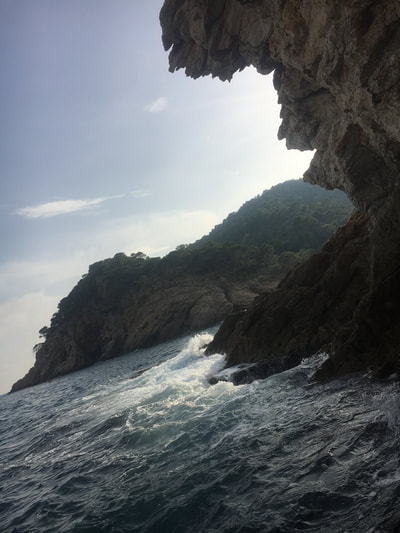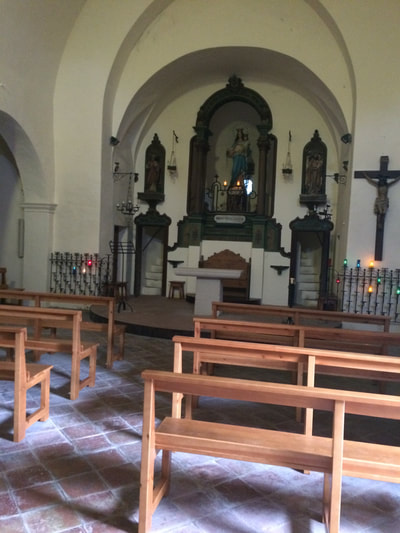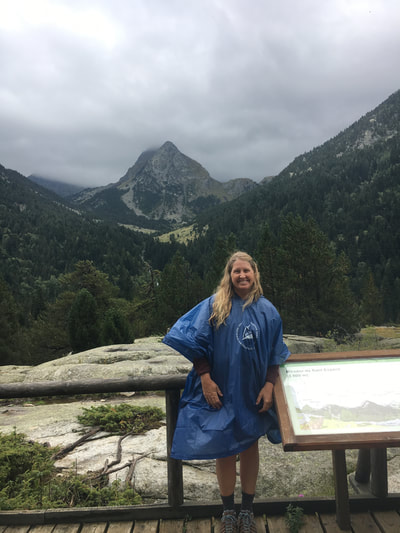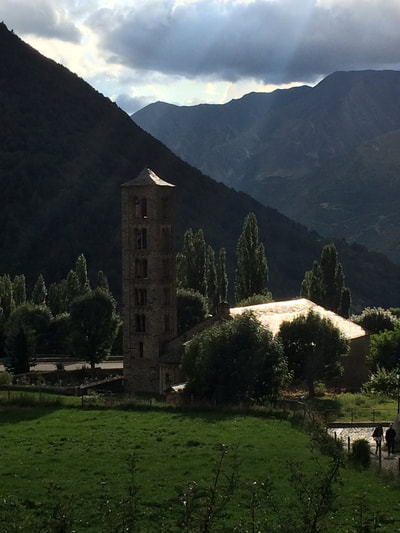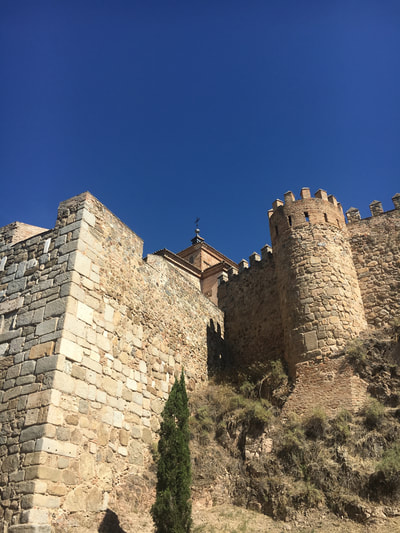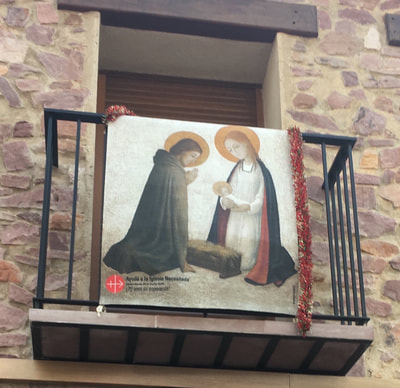|
When I was growing up, I remember studying some form of "Christmas Around the World" almost every year in December. Whatever book or video we happened to be looking at showed the ways different Christian countries celebrate Christmas. The focus was usually on gift giving traditions, since that's what kids are primarily focused on. I remember these stories and pictures seem so far away and exotic compared to what we habitually celebrated in the United States. 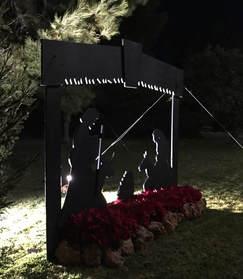 Therefore, it is interesting to feel like I am now living amongst the pages of another country's Christmas traditions. However, like most things you live instead of read about, they don't seem quite as exotic when you know the people celebrating them. It has been very interesting to listen to what families are planning and drive around to look at decorations. Carson and Celia's Spanish as a second language classes spent several days going over the details of how people in Spain celebrate Christmas, prompting me to do a lot of research on how to change some of our traditions while we are here. Even though Santa (called Papa Noel in Spain) "tracked down our kids," especially Celia, he really made a big effort since Santa doesn't come to Spain. Some people have embraced this American tradition (I guess they started a letter-writing campaign to get him to come see a few of them), but really, the main day for giving presents doesn't come until January 6th, on Three Kings Day. What we don't learn in books is how hard it is not to blend traditions and how hard some countries try to protect theirs. Chiqui, our Spanish teacher, went to a Catholic school through high school. She said that the nuns told them not to believe in Santa Claus since he was American. Also, because he wore red and white, "just like coca-cola." And, for many, Santa is thought of as a figure that will take kids away in his sack if they are bad. One of the main decorations that we've seen is Santa and his pack climbing over balconies like a thief. Christmas in Spain is a much longer holiday than in the United States. Christmas eve and day themselves are much more holy for everyone here in Spain. Because of the Catholic tradition, Christmas is for families and religion. The celebrations and gift giving come later. Christmas Eve, or Noche Buena, is the night that families gather for their big dinner. usually even later than usual so they can all go to midnight mass. Midnight mass is called Misa del Gallo (Mass of the Rooster) because it is believed that a rooster crowed at midnight on the night Jesus was born. Celebrations go on all through the night. One Spanish Christmas verse says, "Tonight is the goodnight, and it is not meant for sleeping." I can only guess that this means that Christmas Day is spent primarily sleeping. Just as every country entwines pre-Christian symbols (ivy, trees, mistletoe, etc.) with Christian symbols, each country has different symbols that are prevalent. In the United Sates, the Christmas Tree is brought into the house It is a tradition that started with the Viking Celebration to the sun God, Balder, and was changed in Germany to a Christian symbol representing everlasting life. In Spain, the Catholic tradition focuses more on pure Christian symbols. Inside each house, rather than set up Christmas trees, families set up a "Belen." Belen is the Spanish name for Bethlehem and they are basically very elaborate nativity scenes, some small and some life-size. One of our Spanish friends says she jokes with her sister about bringing in camels, her sister's Belen is so big. She said she even puts sand all around it inside the house. Belen characters are sold in all the stores and some Spanish towns have stories leading up to the Belen that are displayed through town so people can visit each scene. Within the Christmas season, two other days are considered special. One is December 28, or Innocents' Day. This is a day much like April Fool's Day in the United States. The other is El Gordo, the biggest lottery in the world. I was sitting in a cafe on December 22 and over the loudspeaker was the most monotonous droning of children repeating the same thing over and over. After a while it started driving me crazy so I asked Melissa, a Spanish woman who works in the coffeeshop, what it was and why it was playing. It turns out that the chanting is done by the orphans of Madrid's San Ildefonso school singing winning numbers of the Spanish National Christmas Lottery. As I can attest by being forced to listen for 2 of the 5 hours, it is one of the most boring and monotonous shows you will ever see or hear. However, most of Spain is glued to their TV or radio for its entirety. By the end, thousands of lives of individuals and villages will be changed forever. The lottery was started by King Carlos the III in 1773, and even the Spanish Civil War did not cause it to end. Learning about it now explains the obsession with lottery ticket sales on street corners of almost every store in Spain. Plus, there are lottery stores where tickets and tobacco can be purchased. Both of these items are taxed so the money can be used for public works. Winnings are in big and small chunks to individuals, groups of people, and sometimes entire pueblos. Now that El Gordo, Christmas Eve, Christmas, and Innocents' Day have passed, children in Spain anxiously await Three Kings Day on January 6. This is the last day of the Christmas Holiday before school begins again. January 5 will be a day of large parades throughout Spain as the Three Kings enter the city on their camels. We will be in Barcelona that day, so we will get to experience the whole spectaclein its most elaborate form. Unfortunately for our kids, we told them that they have to choose which tradition they want to embrace. Since Papa Noel did make a toy giving visit to our house, the Three Kings will not be stopping. Carson and Celia made a convincing argument for mixing both traditions, but deep down, it was a thinly veiled attempt to get more presents.
2 Comments
Sherron
12/31/2017 10:56:06 am
Couldn't be a better look at the contrast of traditions- and I love the ending-- can just hear the argument- Ha.
Reply
MARIANNE STAMBAUGH
1/7/2018 04:47:58 am
Interesting! I'm enjoying seeing through your eyes. Happy Holidays... all of them!
Reply
Leave a Reply. |
AuthorSally and her family moved to Spain for a year from July 2017 - July 2018. They lived in a little town called Puzol, which is about 20km north of Valencia. Her kids, Carson and Celia, attended the American School of Valencia, an International School located in Puzol. The goal for the whole family was to experience another way of life, and learn Spanish. Archives
May 2018
topics |
contact
|
